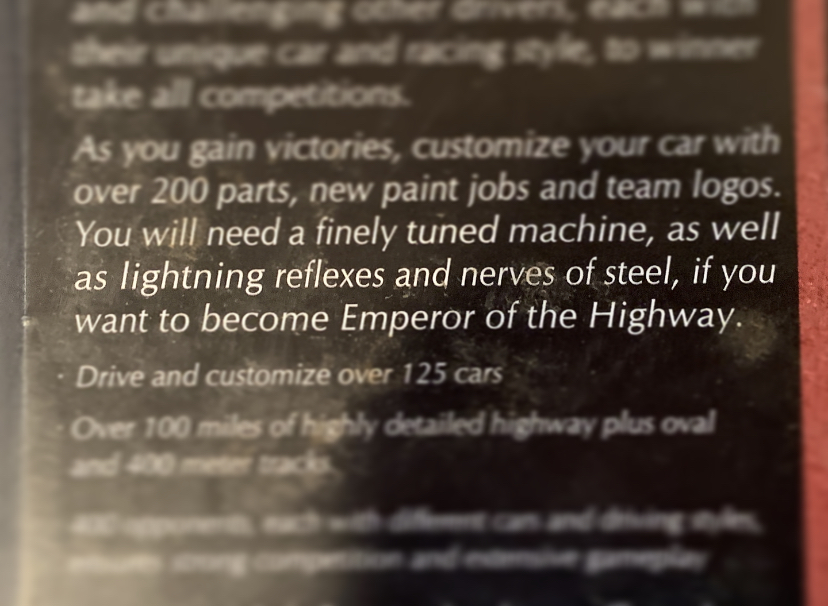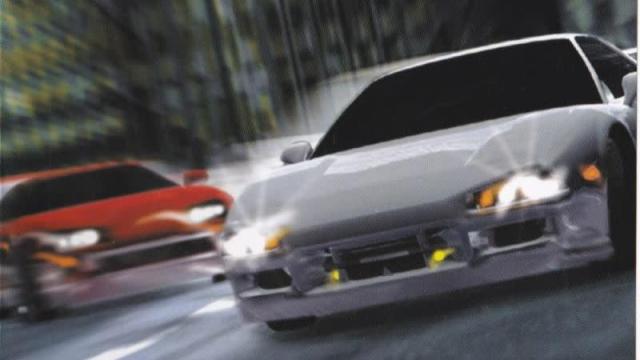Last week I launched an archaeological expedition to my parents’ basement. The prize: My old PlayStation 2 and a handful of games. Among them was Tokyo Xtreme Racer Zero, which I’d committed countless hours to in the early ’00s. It’s been a week since I rediscovered it and my thumb already hurts from mashing the throttle. I will become emperor of the highway once again.
The intro is better-animated then the game itself, but it gives you a good idea of what’s going on here. Also, it gets me fired right up. Let’s watch!
I found a 4K upscaled version too, but somehow that feels like cheating.
TXR, as it’s known, is a Japanese highway street racing game built around the same legends that inspired the manga and anime of Wangan Midnight. High-powered tuner cars zooming around Tokyo’s highways long after all the normies go to bed. Why? Who can say. But they’re out there. And they’re racing. Except they don’t call it racing. They call it… battling!

By modern standards, TXR isn’t much to look at. Its sequel, Tokyo Xtreme Racer 3 (three comes after zero, natch), has aged slightly better but we’re still pretty much talking about 20-year-old visuals. More significantly, TXR3 got officially licensed cars, but all the unbranded knockoffs in the original game I’m here to tell you about today were all dead-ringers for real vehicles. Any JDM car fan would immediately recognise.
As you might have noticed if you hang with me on Twitter, I’m currently driving something that is obviously supposed to be an R32 Skyline:
Found the wires for the PlayStation 2 I unearthed from my parents’ basement!
I forgot how great it is to play a video game with no online connectivity, pop-up notifications, or updates to download.
Running it with a composite cable on a newish TV and it looks not-bad! pic.twitter.com/G8vQTzc2Gd— Andrew P. Collins (@andrewpcollins) September 14, 2020
You might also notice that the words “Flame Iron Heart” appear above the car. That’s not the vehicle name, it’s mine, but shoot I’m getting ahead of myself.
The structure of TXR is pretty simple. You’re out on the highway, you chase down other tuners and flash your high-beams at them to initiate a race. Eurobeat intensifies. The “track,” is a populated section of Tokyo’s highway. You weave and swerve between trucks and taxis to stay ahead of your opponent.
But the racing itself is what makes the game unique. There’s no real starting line or finish. In fact, races can begin and end anywhere within the game’s world. Victory is decided by little health bars at the top–both competitors have one, every second you’re lagging in second place, your health bar creeps up (down?) toward doom. The further you get left behind, the more quickly the bar moves. And it goes up in big leaps if you crash or bump someone.

Two evenly matched cars could race forever, in theory, if they stayed abreast or kept passing each other. You win by maintaining first place the longest and driving the smoothest. No two races are ever quite the same, and the large population of NPCs to challenge combined with the game’s simplicity makes it pretty addictive.
Winning races wins you cash, cash lets you upgrade your car, and as you upgrade, you can challenge faster opponents.
Here’s a few hours worth of playthrough footage if you still don’t get what I’m on about:
It is repetitive, and in fact, getting to know the highway is key to victory as you get faster and faster cars. But my obsession with Japanese cars and tuner culture has got me hooked on this game again just like I was when it came out and my PlayStation 2 was among my most prized possessions.
The gameplay is fun in that it’s unique, but the novel Japanese-ness of the game itself is also delightful. I mentioned my “name” was “Flame Iron Heart…” Well, all the racers (including the disembodied character you play as) have strange names that have to be odd translations, and they change as you play.
I have no clue how the game determines what your name is, and it doesn’t seem to have any bearing on the “story” such as it is, but it is pretty funny. The rival racing gangs are similarly silly–I beat the “Knife And Forks” racing crew last night.
2001’s TXR is unique as a racing game and refreshingly simple as a game to revisit. If you have an old PS2 lying around somewhere, I think this game is worth dusting the console off and buying a modern TV adaptor.
I think this game is responsible, at least in part, for my love of tuner cars. And I already can’t wait to sign off work and game on this again, completely unencumbered by online connectivity, updates, or pop-up notifications.
Also, if you like this genre of car culture, read my essay about the Wangan Midnight series too.

Comments